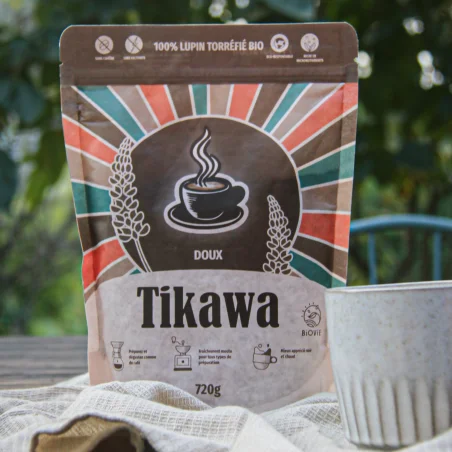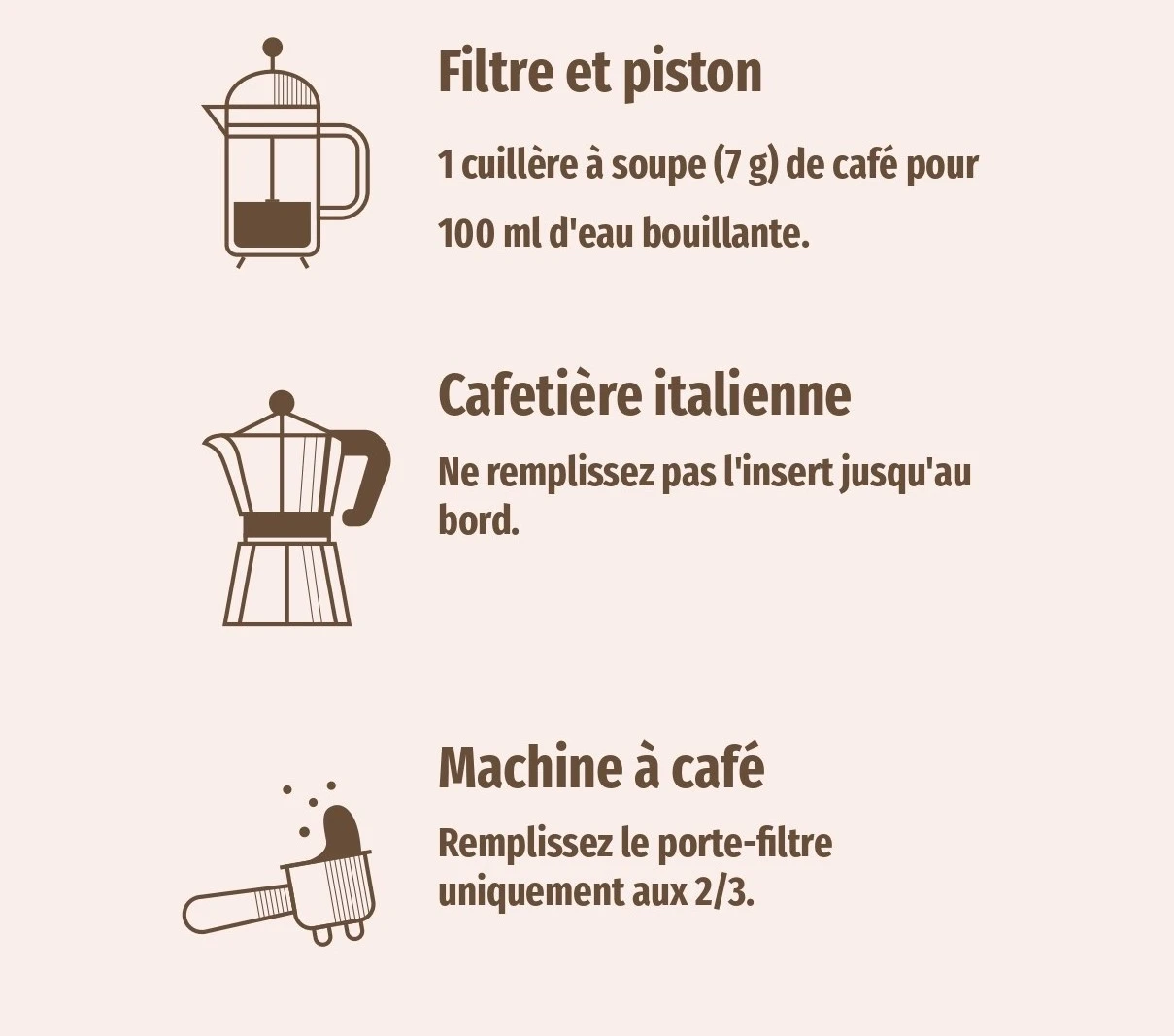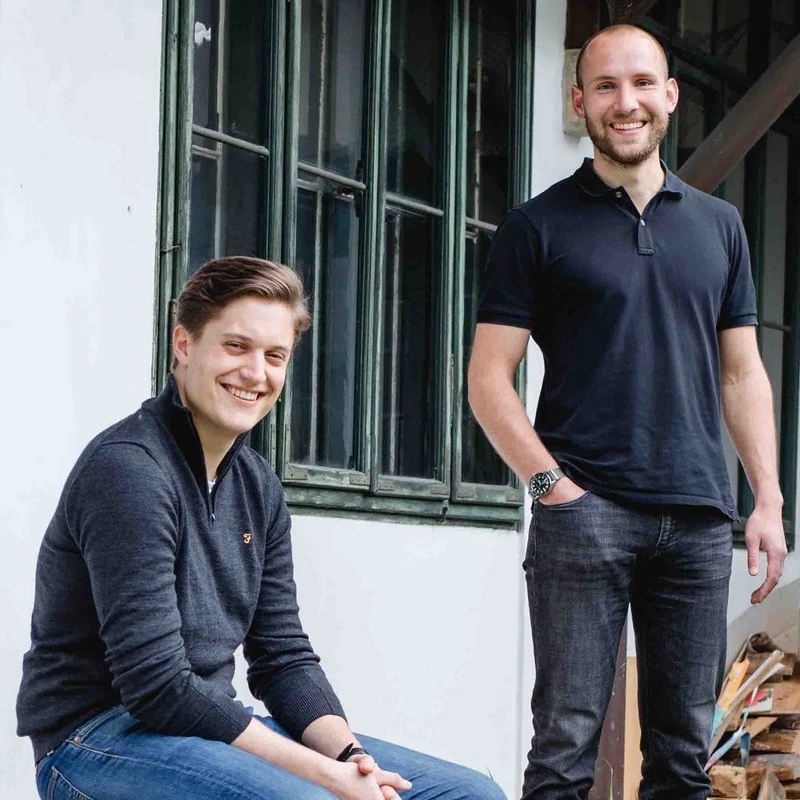























Alternative to coffee, 100% roasted lupin seeds
Certified organic
Mild taste, 720g
Aromas of popcorn, vanilla, and a hint of chocolate! Prepare and enjoy like coffee !
Coffee, and more specifically coffee beans, is one of the most ingrained habits in the daily lives of the French and, at the same time, the hardest to change. Whether one needs to stop consuming coffee for health reasons or simply wants to reduce their daily intake, this little addiction to the hot beverage is hard to break, as the sensory experience is unique: the smell of hot coffee, that typical taste at the end of a meal, the strength of the drink upon waking... And until now, no alternative could combine all these aspects with a positive effect on health AND the planet.
We had been looking for a long time for this alternative, a real decaffeinated coffee without any side effects.
☕ A superfood, not so new after all
Tikawa is the rediscovery of an ancient infusion made from lupin seeds (a seed from the legume family) that has been part of human history for at least 4000 years! Mentions of this lupin infusion are found on ancient Egyptian papyri. And, closer to us, Italy and Germany are well acquainted with this alternative as the one with a taste closest to coffee. It was about time it arrived in France !
☕ A drink that does you good
Tikawa, this excellent alternative with a delicious taste, is Naturally caffeine-free and acid-free, produced according to regenerative agricultural practices in Germany, and is the closest drink to coffee that you can taste. Unlike coffee, which has a significant ecological and societal impact (comes from far away, questionable working conditions, polluted soils...), lupin is grown locally and has an incredible ecological footprint.
Moreover, it is the first alternative coffee that can be prepared like a classic coffee, regardless of the method used (machine, Italian coffee maker, filter...). But be careful: even if it is prepared like classic coffee, it behaves physically differently. So, you will need to learn the art of preparing a good Tikawa! For the preparation of Tikawa Doux, we recommend using a filter or a French press instead !
☕ Tikawa, who is it for ?
People looking for a healthier and more sustainable lifestyle or simply anyone who enjoys a good cup of coffee. It is suitable forEven for children, pregnant or breastfeeding women. Tikawa is for all of you !
Naturally caffeine-free, irritant-free, gluten-free, soy-free, and lactose-free, it can therefore be enjoyed by everyone without moderation.
Warning: as with soy and peanuts (cousins of lupin), a very small number of people are unable to process certain strains of proteins found in lupin. Therefore, avoid it if you have a legume allergy.
Lupin beans are roasted = this product is NOT RAW (without roasting, it is impossible to find the taste of coffee).
☕ An alternative that adapts to all your desires
With 2 sugars or plain. With plant-based milk or without milk. Hot or cold. In a cup or in a pastry. It's up to you !
> We even created for you a recipe ebook to add Tikawa to your daily meals! >Click here to download it It seems like your message was cut off. Could you please provide the full HTML text you would like translated?
> We offer you 3 varieties: Classic, Soft and Intense
☕ Small User Guide
The preparation of lupin coffee is very similar to that of classic coffee. Whether using a stovetop coffee maker, a filter, or a French press, you can easily extract the maximum aroma and taste from your daily coffee.
The grind: first of all, the grind is coarser and heavier than regular coffee. Therefore, to prepare a Tikawa, you need to use less grind in terms of volume compared to regular coffee.
It swells! Lupin coffee swells much more than regular coffee because lupin seeds have a higher protein content than coffee beans. This mainly affects the preparation in an espresso machine and an Italian coffee maker. Using too much ground coffee will prevent the water from flowing.
If you are using an automatic coffee maker, you will definitely need to readjust the settings (more water, less grind). Otherwise, you risk blocking the machine...
> Filter and piston: use 20% less powder than for traditional coffee. This preparation method is perfect for the Sweet Tikawa !
> Italian coffee maker: use about 50-65% of the usual amount of grind (in terms of volume).
Lupins are flowers with rich and varied colors native to the Mediterranean region. They are cultivated for their ability to enrich the soil and for their seeds, which are rich in high-quality proteins and fibers.
It is a healthy, local, and sustainable alternative to soy. Its cultivation requires neither pesticides nor fertilizers and has long been reserved for animal feed.
It is gradually making its way back onto our plates, particularly thanks to its high content of plant-based proteins: almost 40%! This makes it a very good competitor to soy. Additionally, it contains the 8 essential amino acids for a perfect protein. Its glycemic index is low and it contains essential fatty acids.
> Rich in vitamin E, it has an antioxidant effect. It contains a good amount of vitamins B2, B3, and B9, which are important for the regulation of the nervous system and for the regulation of our metabolism.
> Rich in minerals: magnesium, calcium, zinc, and iron.
Lupin seeds are roasted at a lower temperature and for a longer period than coffee beans. This process is gentler and reduces the formation of residual substances and polymers produced during roasting. As a result, coffee alternatives are much more easily tolerated by the stomach.
Traditional coffee is an acidic product. Naturally present in green coffee beans, acidity is enhanced during roasting. It is also contributed by caffeine: it prompts the body to produce more acid, which, after a high dose of caffeine, can lead to such a level of acidity that you get a stomach ache. It's not harmful, but it's not pleasant !
Lupin coffee, on the other hand, is naturally free of acidity and caffeine: no more issues with acid reflux or stomach cramps.
Benefits for the planet too! For a daily coffee drinker, per year:
- 75% less CO2 during the production of Tikawa compared to a regular coffee.
- 13,000 L of water used (=1 shower of 3 min/day) VS 126,000 L of water for coffee (=2 baths/day)
- 0 L of water polluted with lupin: no need for fertilizers or pesticides for its cultivation
- 78% less ground surface used (19m² compared to 88m² for coffee)
Coffee has a strong ecological footprint; it should not be a mass-produced product in a world that is conscious of its impact on living beings.
☕ Also check out our blog articles:Tikawa is the result of a partnership between Biovie and the German company Loffee, led by Simon and Jan, both of whom come from the coffee industry. Their expertise, acquired throughout their professional careers in refining the best raw coffees, is now dedicated to the development and production of their organic lupin-based products.
Indeed, they have learned and mastered, thanks to their many years of experience, the art of roasting and know that complex aromas need time to fully develop. Their lupins are roasted with as much care as the best traditional coffees. Thus, their expertise and the various technical equipment at their disposal convinced us to work with them and offer you their products.
.webp) |  |
The lupins come from Bavarian organic farming. They are tied, harvested, and processed, so to speak, at their doorstep. The entire process of harvesting and making lupin coffee is transparent. It is also noteworthy that their entire team is properly compensated and no one has to work in inhumane conditions, which is unfortunately not always the case in the conventional coffee industry.
For roasting, Loffee exclusively uses sweet blue lupins, a variety with above-average protein content and very little bitterness. This is why their lupin coffee is so pleasantly sweet and has a lot of body !
Lupin seeds are roasted in two small drum roasters for nearly 30 minutes at a maximum of 180°C. Everything is also ensured to prevent the formation of acrylamide. Thanks to this long roasting process, the beans develop complex aromas and a delicate roasted note.
- Ingredients : 100% pure roasted lupin, from organic farming.
Without additives and without chemicals. Caffeine-free and free of caffeic acid.
Sweet Taste
- Origin : Cultivation, barrel roasting, and packaging in Germany.
Distributed by Biovie
- Packaging: 100% recyclable bag, 720 g
- Conservation : at room temperature, in a cool, dry place, away from light. Reseal the bag well or place in an airtight container to limit the loss of aromas and increase shelf life.
- DDM: October 7, 2026
| Nutritional value per 100 ml |
| Energy 3 kJ/1 kcal |
| Fats < 0.1 g |
| fatty acids |
| saturated < 0.1 g |
| Carbohydrates < 0.1 g |
| sugars < 0.1 g |
| Proteins 0.2 g |
| Salt < 0.03 g |
Ces produits pourraient vous intéresser